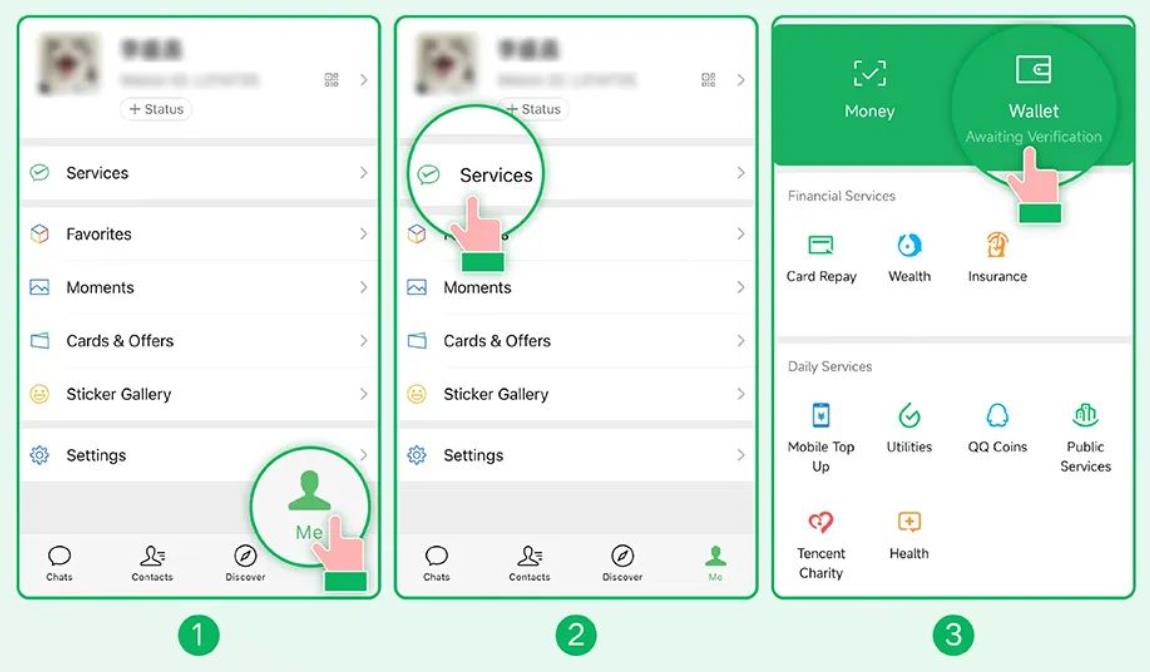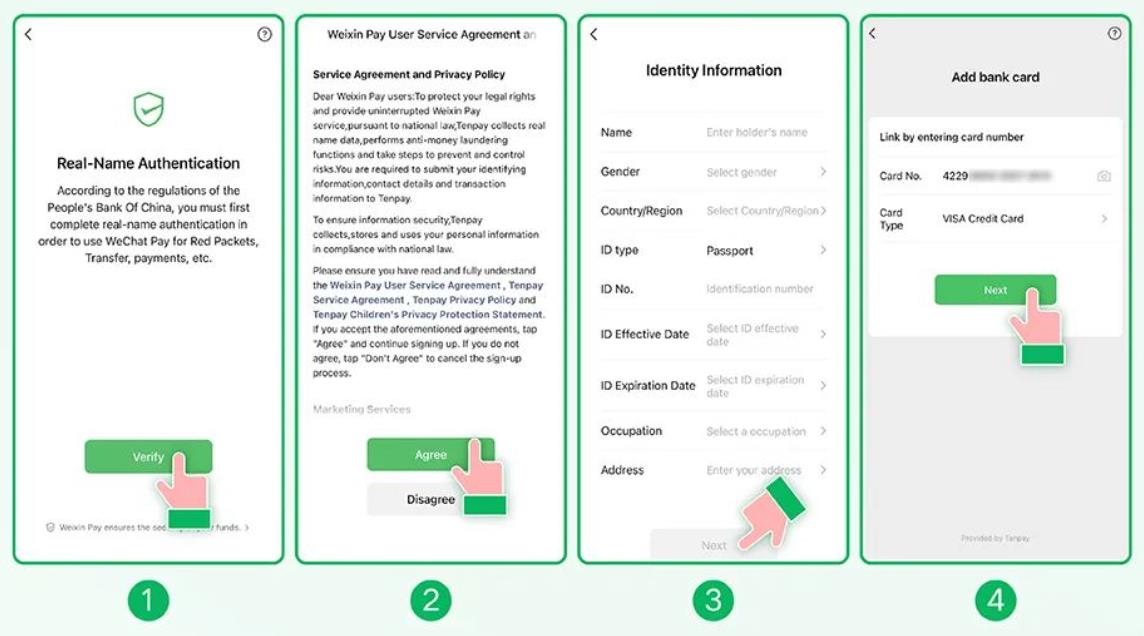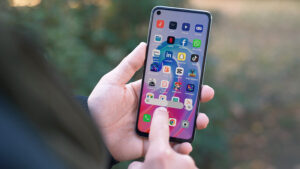
WeChat Pay for ouverses users or tourists to China
Starting from the end of July 2023, overseas users or tourists who link their international cards to WeChat Pay and Alipay will be able to use mobile payments at the vast majority of merchants in China. This includes various sectors such as shopping, dining, transportation, as well as accommodation payment.
Guide to Add and Use International Cards with WeChat Pay
Get ready with your related identity documents and international cards.

Step 1: WeChat Download or Update, and Registration
Sign up WeChat with your phone number or sign in. (To find out how to buy a Chinese mobile phone SIM card and use cheap data packages in China, please read the article: Guide about access internet and must-use apps in China in 2024)
Step 2: Find the WeChat Payment Portal
Tap Me – Service -Wallet

If you cannot find the option above, you can activate WeChat Pay in one of the following ways:
- At the bottom, tap Me – Setting – General – Tools – WeChat Pay. Tap Enable.
- On the top corner, tap +, then tap Scan to scan the following QR code. Tap Enable.

Step 3: Fill in your identity information and add a card
In Wallet, tap Add a Card. Read the WeChat Pay User Service Agreement and Privacy Policy and tap Agree. Follow the steps on the screen to fill in your identity information. Tap Next to add your card. Follow the instructions on the screen to complete the process.

If you choose to verify your identity using your passport, you will receive a notification requesting you to upload a copy of your passport.
How to use WeChat Pay
Enjoy mobile payment in the following ways:

Frequently asked questions:
Q: What documents can I use to set up WeChat Pay?
A: You can use a passport or a People’s Republic of China foreign permanent resident ID card. Additionally, a mainland travel permit or residence permit for Hong Kong SAR, Macau SAR, and Taiwan residents can also be used.
Q: Do I need a Chinese Mainland phone number?
A: No, you don’t need a Chinese Mainland phone number. You can use your international phone number as long as it can receive SMS verification codes.
Q: What kind of transactions does WeChat Pay currently support for international cards?
A: Currently, international cards can be used for everyday purchases within the Chinese mainland. However, international cards do not support certain features such as red packets and money transfers, etc.
Q: Is there a transaction limit? How is the exchange rate calculated?
A: There is a limit of 6,000 RMB for single transactions, a cumulative monthly limit of 50,000 RMB, and a cumulative yearly limit of 60,000 RMB for transactions. The exchange rate will be calculated based on the exchange rate provided by the card organization and the issuing bank of your international card.
Q: Are there any transaction fees?
A: Yes, there are transaction fees. However, transaction fees are waived for single transactions under 200 RMB. A 3% transaction fee will be applied for single transactions above 200 RMB. If you request a refund for a transaction, the transaction fee will be reimbursed in proportion to the refunded amount.
Q: Is WeChat and WeChat pay safe?
A: WeChat and WeChat Pay can be considered safe for everyday use, but users should exercise caution, be mindful of their privacy, and stay informed about any potential risks or changes in the platform’s security landscape. Additionally, the perception of safety may vary depending on your location and individual concerns about data privacy and government involvement.
We hope this article helps you during your travels in China, and we will continue to update it with the latest information.



